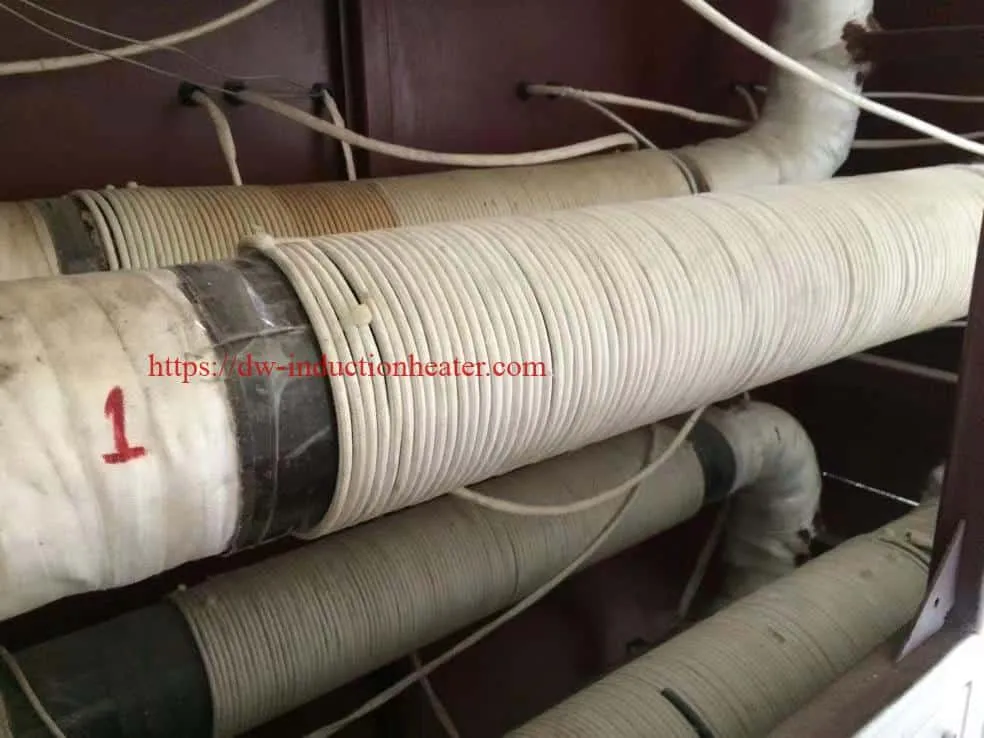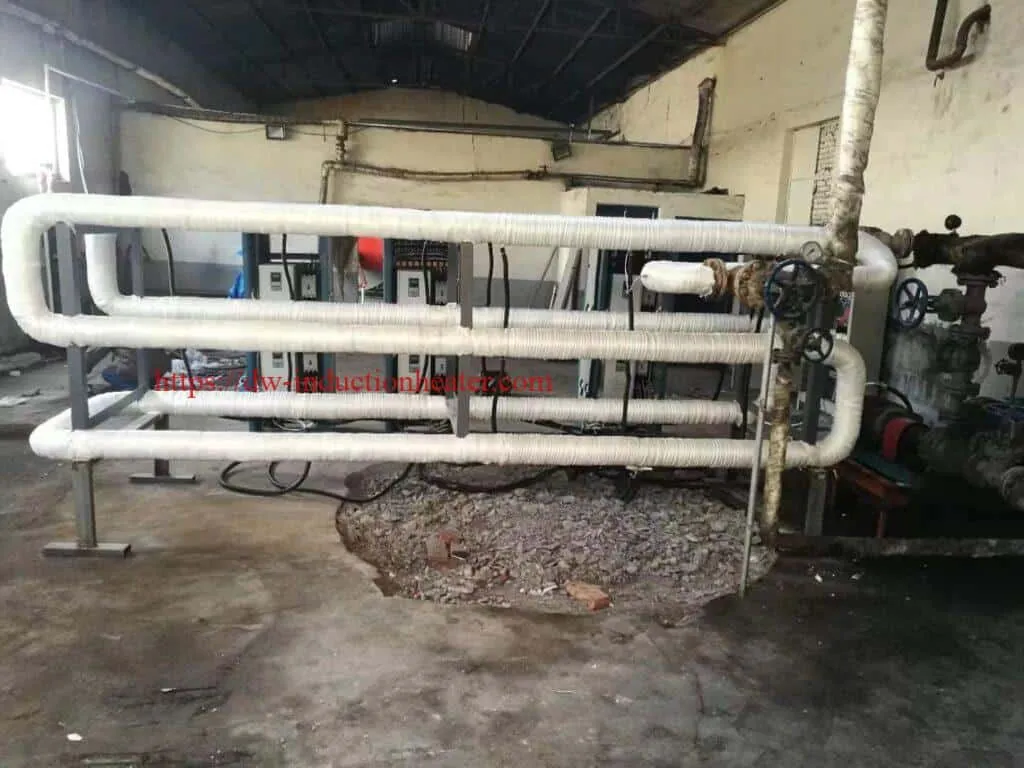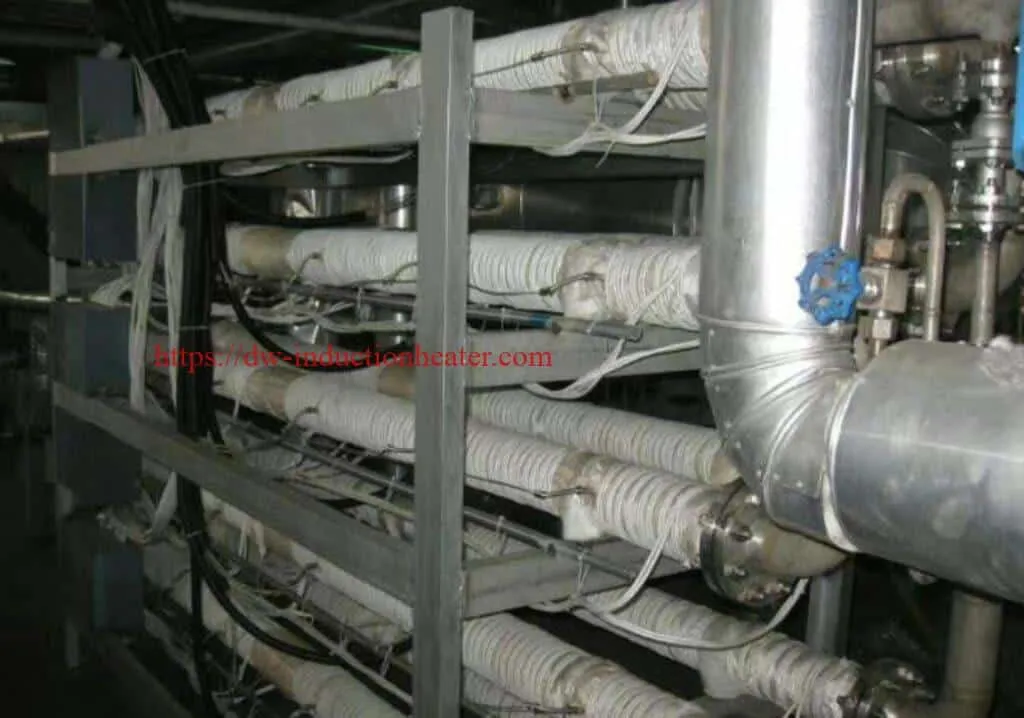Induction Heating Thermal Conductive Oil-Induction Fluid Heater
Conventional heating methods, like boilers and hot press machines that burn coal, fuel or other material, usually come with drawbacks such as low heating efficiency, high cost, complex maintenance procedures, pollution, and hazardous work environment.
Induction thermal conductive oil heater-Inductive Fluid Heaters
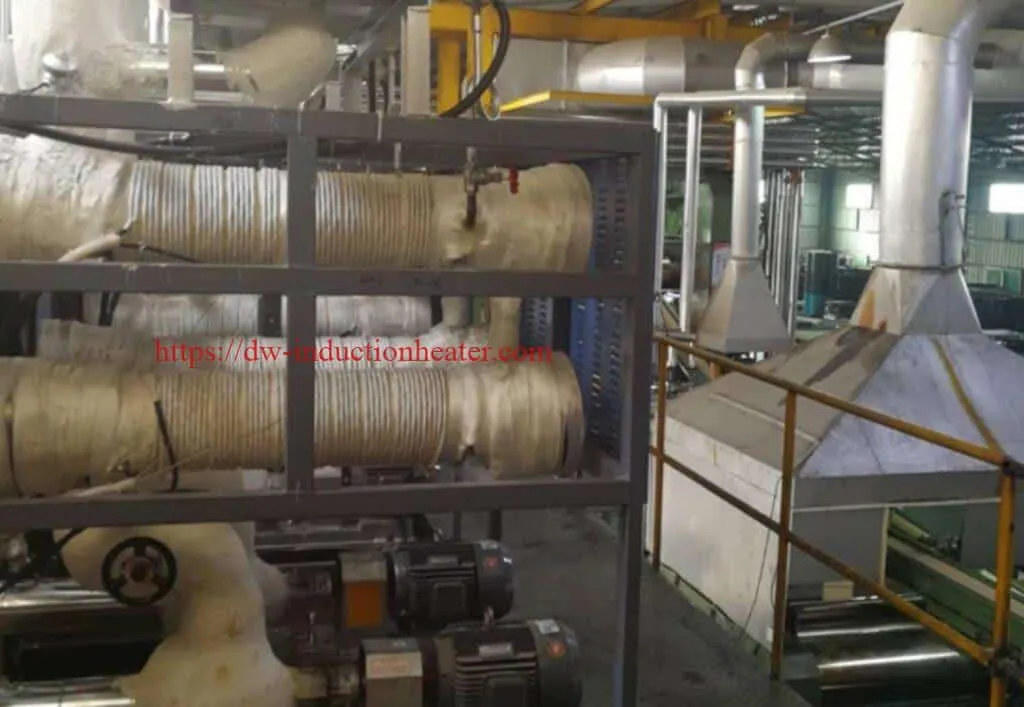 How it works and advantages in its application:
How it works and advantages in its application:
Advantages of using the Induction Fluid Heater
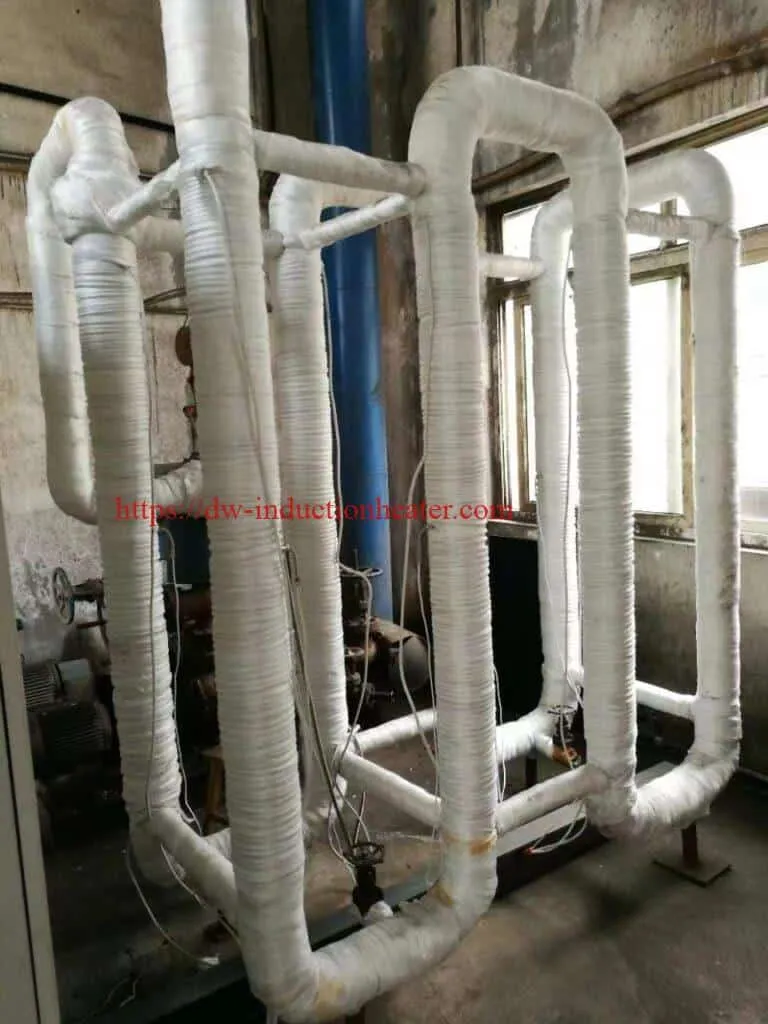
Precise control of the working temperature, low maintenance cost and the possibility to heat any type of fluid to any temperature and pressure are some of the advantages presented by the Inductive Electrothermal Induction Heating Generator (or Inductive Heater for fluids) manufactured by HLQ.
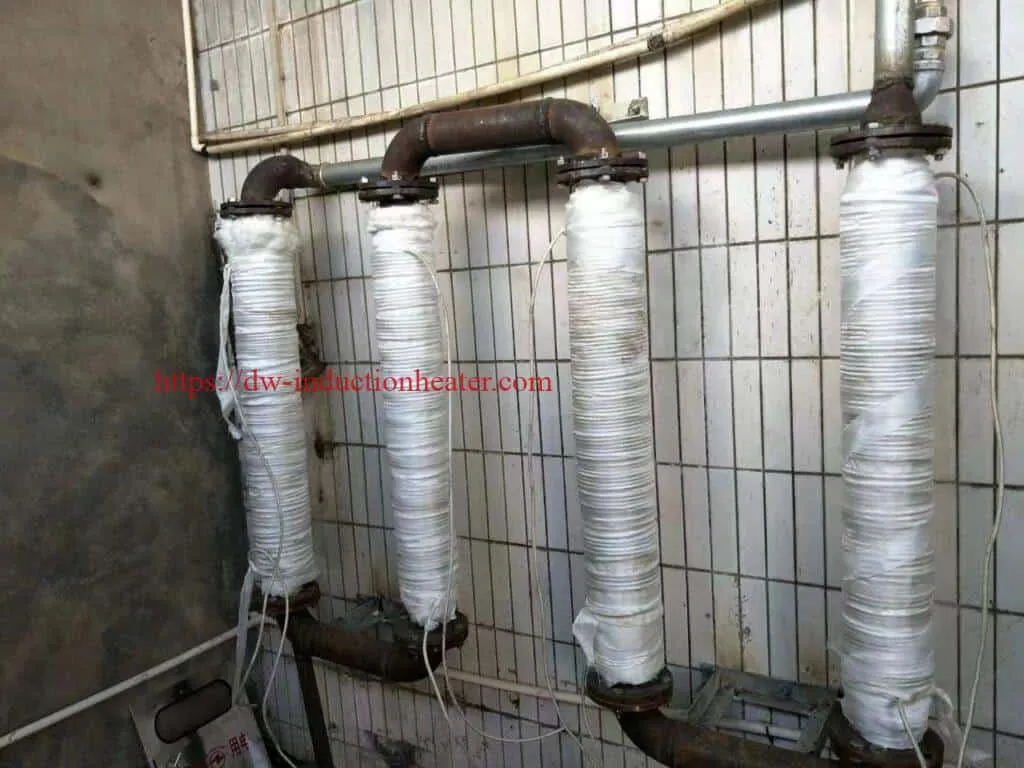
Using the principle of magnetic induction heating, in the Induction Heater for fluids heat is generated in the walls of a spiral of stainless steel tubes. The fluid that circulates through these tubes removes that heat, which is used in the process.
These advantages, combined with a specific design for each customer and the unique durability properties of stainless steel, make the Inductive Heater for fluids practically maintenance-free, with no need to change any heating element during its useful life. . The Inductive Heater for fluids allowed heating projects that were not viable by other electrical means or not, and hundreds of them are already in use.
The Inductive Heater for fluids, in spite of using electrical energy to generate heat, in many applications presented itself as a more advantageous option than operating heating systems with fuel oil or natural gas, mainly due to the inefficiency inherent in the generation systems combustion heat and the need for constant maintenance.
Advantages
In summary, the Inductive Electrothermal Induction Heater has the following advantages:
• System works dry and is naturally cooled.
• Precise control of the working temperature.
• Almost immediate availability of heat when energizing the Inductive Heater, due to its very low thermal inertia, eliminating the long heating periods necessary for other heating systems to reach the regime temperature.
• High efficiency with consequent energy savings.
• High power factor (0.96 to 0.99).
• Operation with high temperatures and pressures.
• Elimination of heat exchangers.
• Total operational security due to the physical separation between the heater and the electrical network.
• Maintenance cost practically non-existent.
• Modular installation.
• Quick responses to temperature variations (low thermal inertia).
• Wall temperature differential – extremely low fluid, avoiding any kind of cracking or degradation of the fluid.
• Accuracy and temperature uniformity throughout the fluid and quality of the process for maintaining a constant temperature.
• Elimination of all maintenance costs, installations and relative contracts when compared to steam boilers.
• Total security for the operator and the entire process.
• Gain space due to the compact construction of the Inductive Heater.
• Direct heating of the fluid without the use of a heat exchanger.
• Due to the working system, the heater is anti-pollutant.
• Exempt from generating residues in direct heating of the thermal fluid, due to minimal oxidation.
• In operation the inductive heater is completely noise free.
• Ease and low cost of installation.

